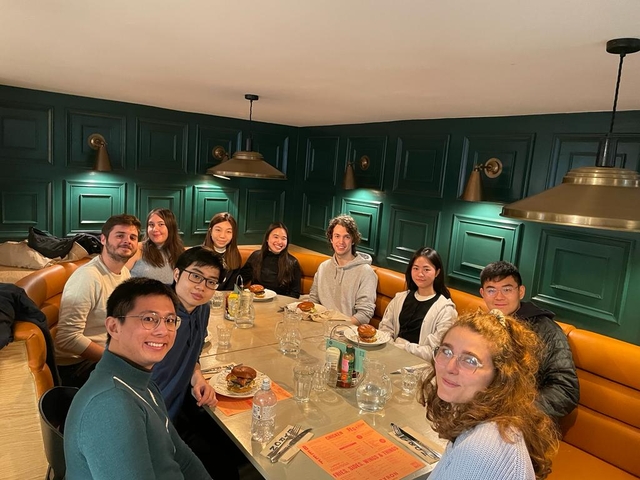What is Engineers Without Borders Society all about?
Our society’s aim is to inspire, upskill and drive change. I have been actively involved with Engineers Without Borders for three years. From being a Project Leader to an Outreach Director and now President, it still feels surreal! Engineers without Borders UK is a charity formed in recognition of the significant role of engineering in both humankind’s accomplishments and shortcomings. In a world faced with issues such as rapid climate change and excessive use of natural resources, we strive to understand and apply engineering principles to address these complex global challenges. So, whatever your background or passion, if you are interested in sustainability, WE want to hear from and work with you. Our society aims to engage with the UCL community by embedding global responsibility and sustainability into the heart of every engineering pursuit and passion.

What are the main things you’re trying to achieve?
My personal motivations for being part of the society are to contribute my 0.5% in making the world better by inspiring the next generation of engineers through outreach and creating workshops, events and podcasts to increase that climate awareness. I am also driven by the opportunity to engage with like-minded individuals who are passionate about these issues. The best thing about being part of the society is getting to meet like-minded people, individuals who share the same interests and passion. Additionally, for those on the committee, there’s the opportunity to unleash their creativity by creating events and workshops.

Why do you think it’s so important to inspire other students to be part of this movement for change?
I believe it’s crucial to inspire other students to be part of this movement for change because new and innovative solutions often emerge from fresh perspectives and creative thinking. By encouraging students to join this movement, it can lead to groundbreaking innovations in humanitarian engineering. It also provides students with the opportunity to build connections with like-minded individuals and professionals who share their passion for change. As Project Leader of Engineers Without Borders Outreach, we’ve been to 13 local primary and secondary schools over the past two years, delivering over 25 workshops to promote sustainability through hands-on activities and educate students about the importance of climate change. It was incredibly impactful, and we could see the students’ enthusiasm to make a change. As the President of Engineers Without Borders Society this year, I have been doing workshops on sustainable 3D printing, social events related to climate change, panel events discussing green technology, and launched a brand new podcast focusing on climate change and sustainability. It’s been incredibly rewarding to meet like-minded people and lead such an impactful society.

What are the biggest challenges for climate action do you think?
One of the significant challenges for climate action, in my opinion, is encouraging individuals to adopt sustainable practices and reduce emissions. Promoting that behavioural change is a key obstacle.
Who inspires you in the world of climate change and activism?
While I may not consider myself a leader in the field of climate activism, I do make a conscious effort to contribute to sustainability on a daily basis. This involves small but meaningful actions, such as using public transportation, reducing my meat consumption, and actively participating and collaborating with sustainable societies. I believe that collectively, even the seemingly small steps we take can lead to a significant positive impact. By advocating for sustainability and inspiring others to join this cause, we have the power to make the world a better place. Clover Hogan inspires me in this field. I had the privilege of listening to a talk by her at a conference. Her words and insights inspired me to take action. It was during this talk that I first encountered with the term “Eco-anxiety”, further reinforcing the importance of young people playing an active role in creating real change. I believe that it’s not just about large-scale efforts, but about the collective impact of countless individuals working together. By raising awareness, inspiring action and advocating for sustainable practices, we can contribute to making the world a more sustainable place for all.